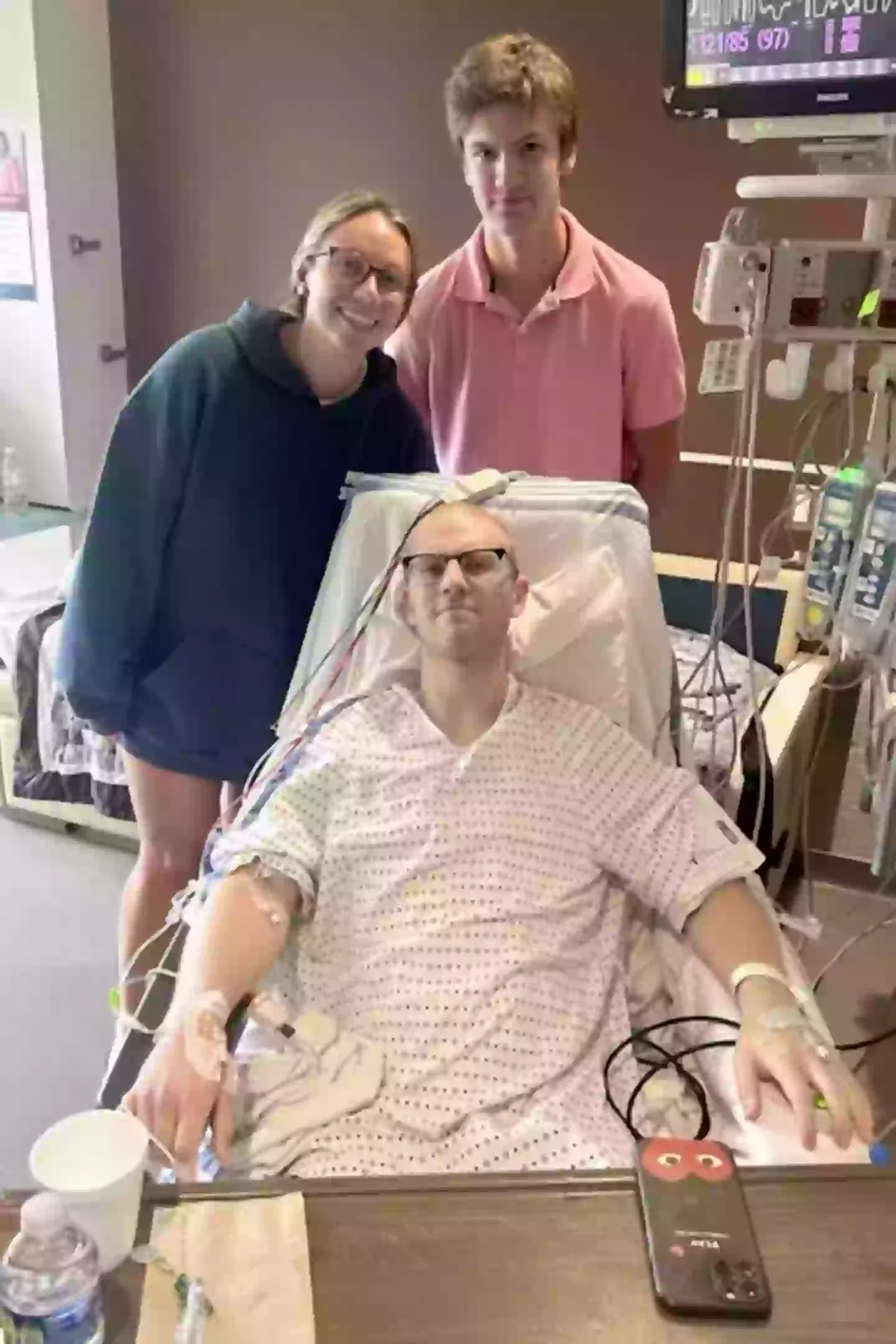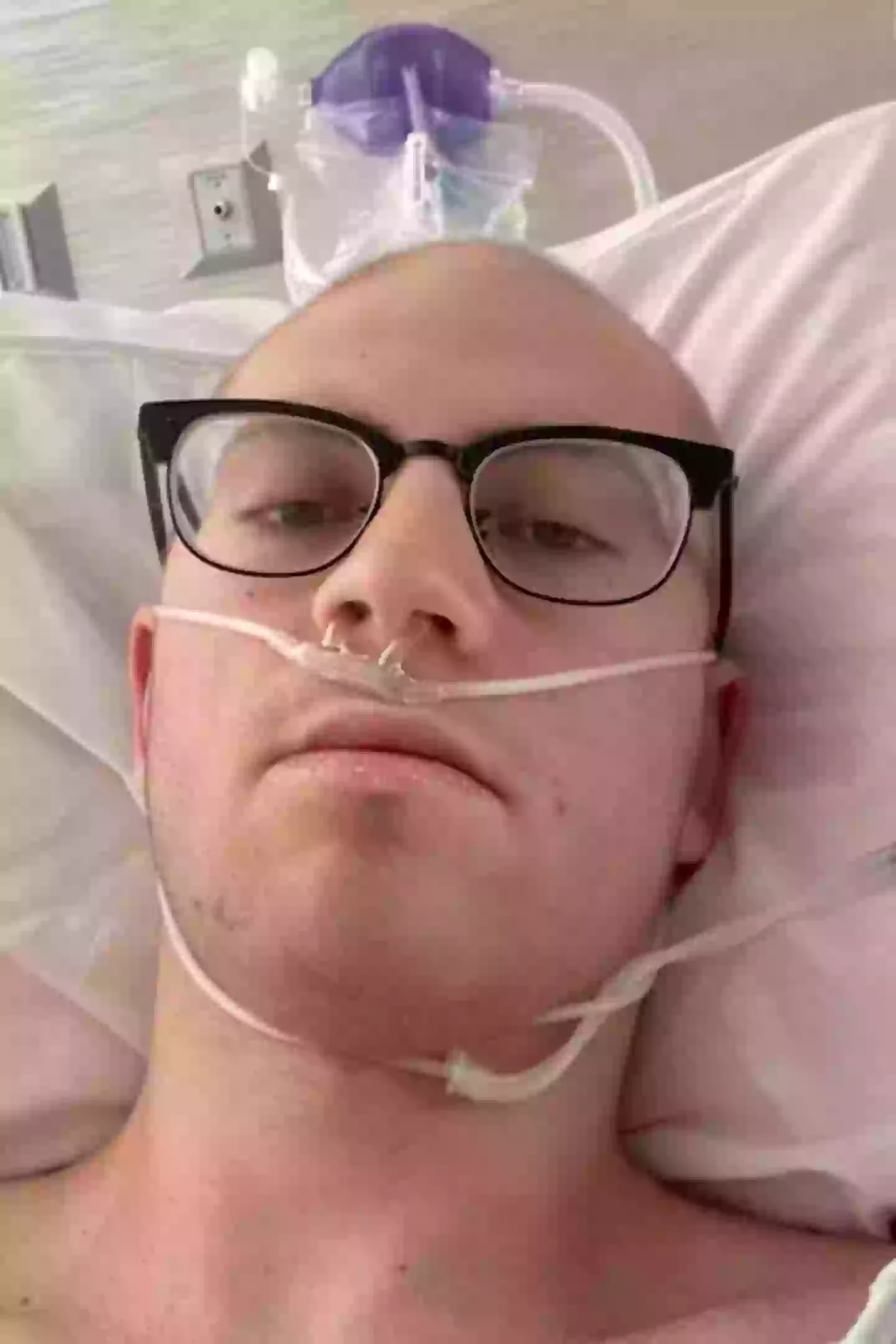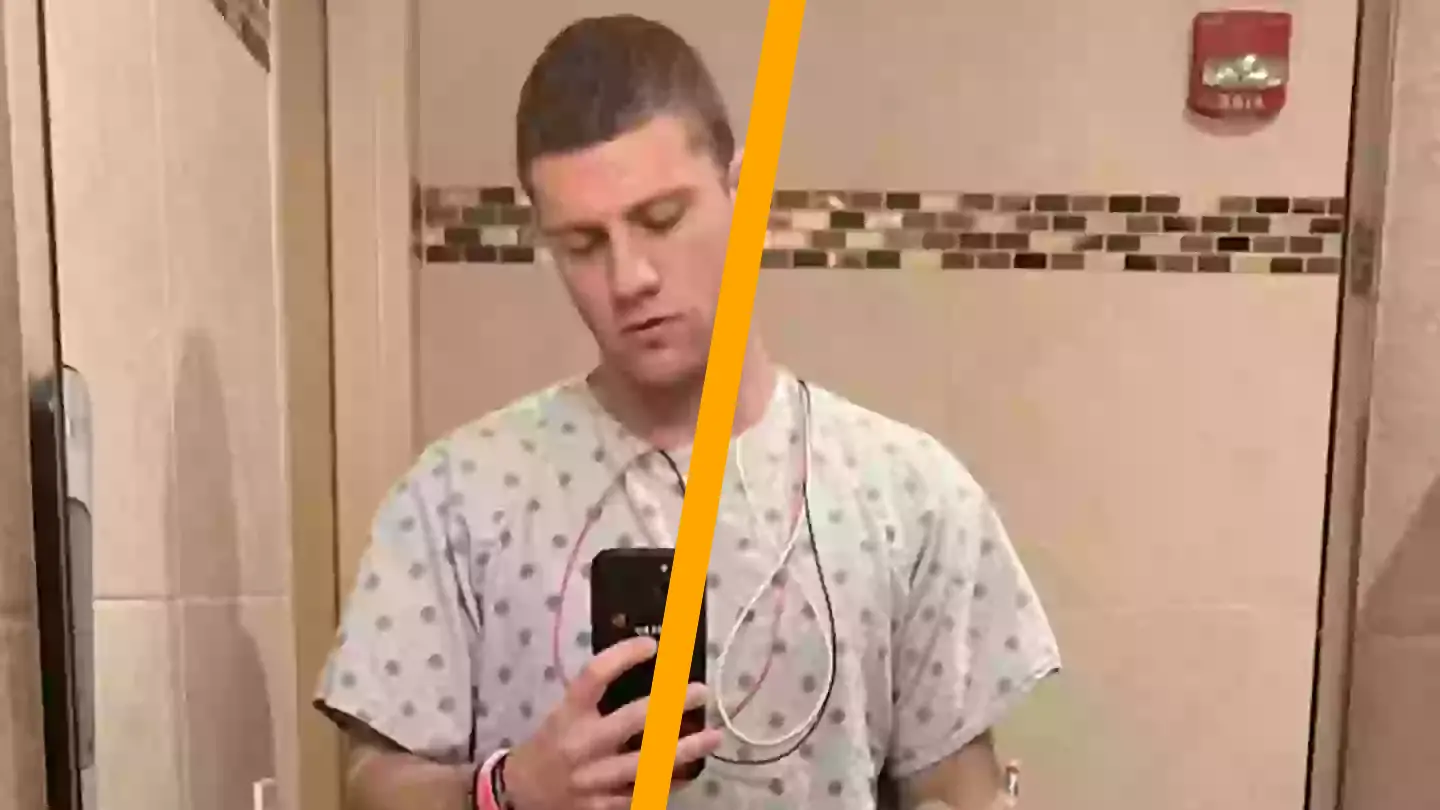Initially, doctors overlooked a man’s extensive health issues, which were later identified as symptoms of stage three cancer.
In 2024, Rob, who is now 21 years old, received a significant diagnosis of stage IIIC testicular cancer.
The Testicular Cancer Foundation explains that Stage 3C testicular cancer occurs when the disease has spread to distant organs beyond the testicle.
This spread could involve organs such as the lungs, liver, or even the brain.
Unaware of his condition, Rob, who hails from Delaware, began experiencing typical symptoms of testicular cancer while he was exploring his interest in fitness during his college years.
“A big part of my day was going to the gym,” Rob shared with The Patient Story YouTube channel.
“I was going for a max squat and about an hour after leaving the gym my back started hurting really bad. I assumed it was weight-lifting related – an injury from my back.”
Despite enduring two weeks of increasing back pain, Rob eventually sought medical advice at his college.

Unaware of the seriousness of his condition, the specialists only prescribed pain medication to help him manage the severe back pain.
Three weeks later, Rob’s back pain persisted, and he noticed a significant decrease in his appetite.
“I was kind of thinking: ‘It’s because my back is hurting. I haven’t been going to the gym, I’m not using any of my energy’ and then the fourth week I’d gone to urgent care again and they just prescribed me another pain med.”
Rob claims that the school doctors failed to perform a blood test, allegedly dismissing him due to the late hour of his visit.
“That next morning I had woken up and it was really early in the morning and I was throwing up blood and bile so I knew something was up,” he admitted.
Following his worsening condition, Rob’s mother advised him to go to the Emergency Room where doctors conducted a CAT Scan, took blood samples, and inquired about any past testicular issues.

He admitted to having had an issue with one testicle being ‘firmer’ than the other for ‘years,’ leading doctors to quickly inform him that he was battling cancer.
Just days after his ER visit, the college student began chemotherapy for stage three testicular cancer.
Rob revealed he initially felt ‘nothing at all’ upon receiving his diagnosis, which he attributed to the supportive attitude of the doctor handling his treatment.
As a survivor of cancer, Rob shared that losing his hair due to chemotherapy was among the most ‘challenging’ aspects of his journey.
Reflecting on the ‘rough’ experience, he confessed to isolating himself at home, worried about how others might perceive him.
“You just look sick. I hated the fact that I looked that way, but there was nothing I could do about it,” he said to the YouTube channel.
After undergoing surgery and having a testicle removed, Rob has now completed his chemotherapy and offers advice to others facing a cancer diagnosis.
“It’s a really good time to realize how many people you have around you,” he said. “If you’ve ever felt lonely before… It’s a really good time to realize how many people do truly love and care about you.”
The American Cancer Society estimates that 9,720 new cases of testicular cancer were identified in 2024.
With the likelihood of one in 250 males being affected by this disease during their lifetime, early detection of symptoms is crucial.
Symptoms like back pain, as experienced by Rob, lumps, swelling in the testicles, and a sense of heaviness in the scrotum, should not be ignored.
The Mayo Clinic adds that signs such as enlargement or tenderness in the breast tissue, a dull ache in the lower abdomen or groin, and sudden swelling in the scrotum may also indicate testicular cancer.
If you have concerns about these symptoms and wish to speak confidentially, you can contact the American Cancer Society at 1-800-227-2345 or use their live chat service, available round the clock.

